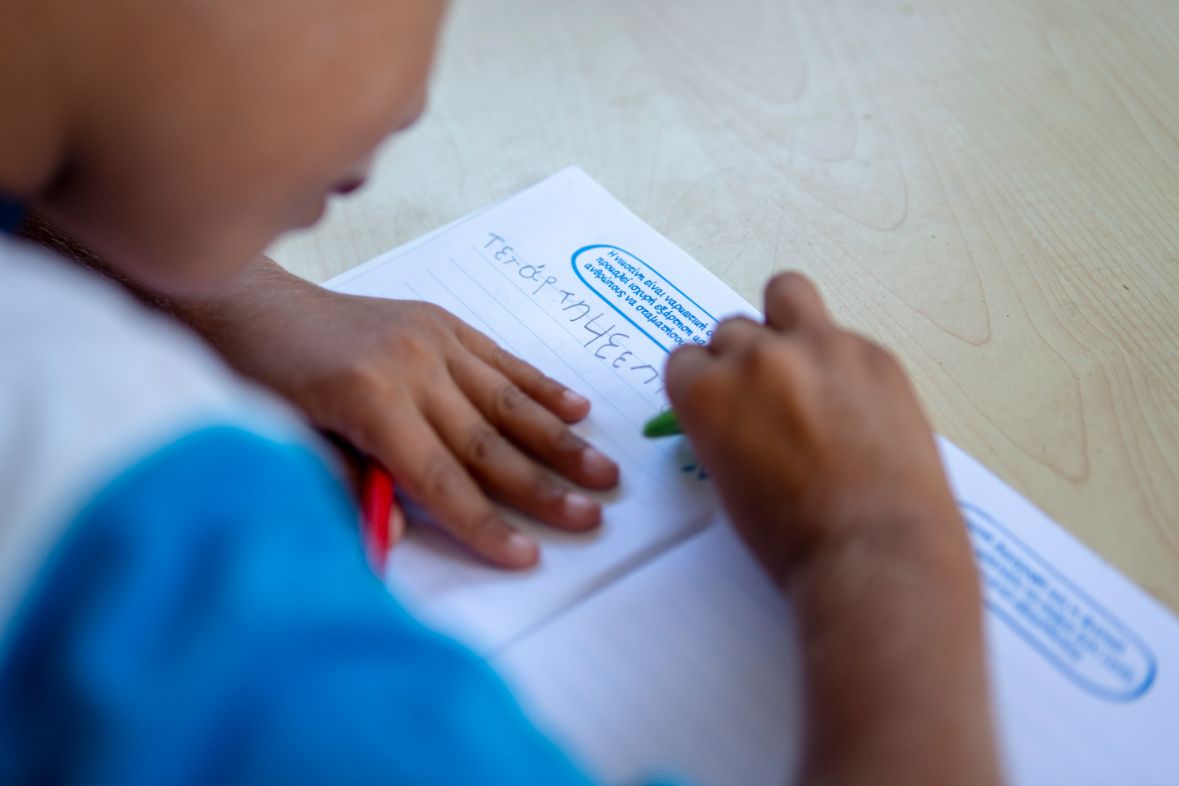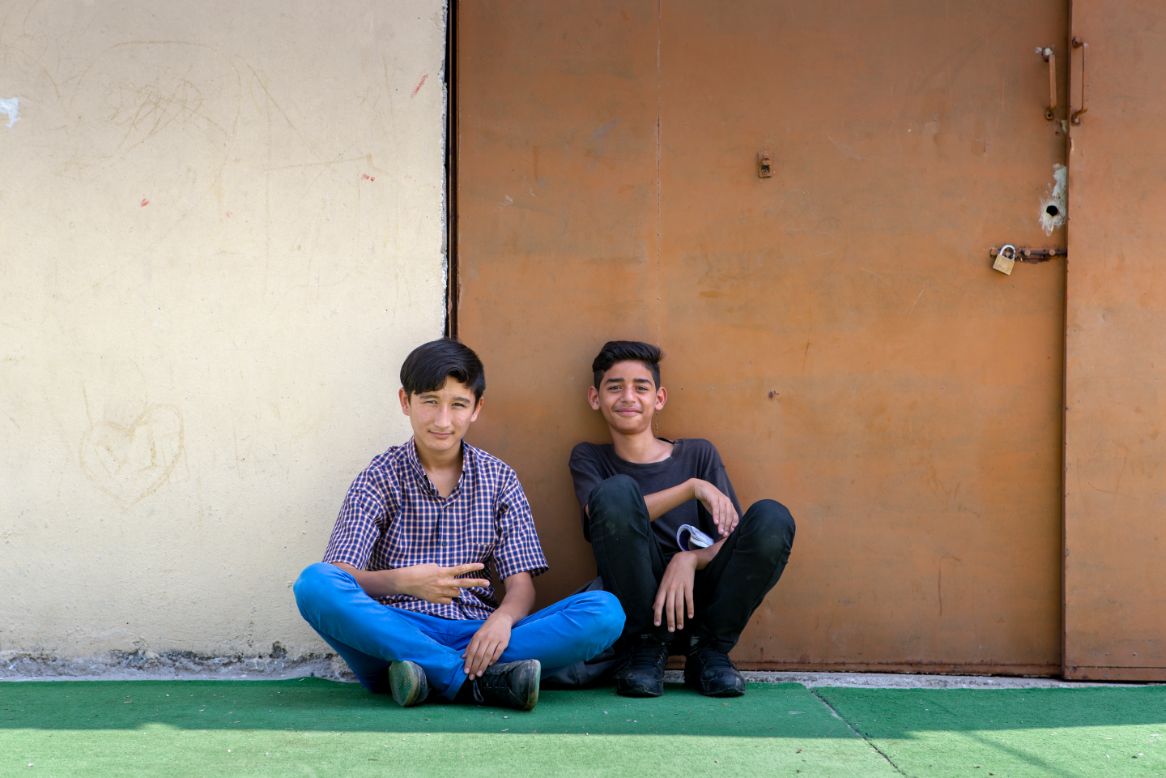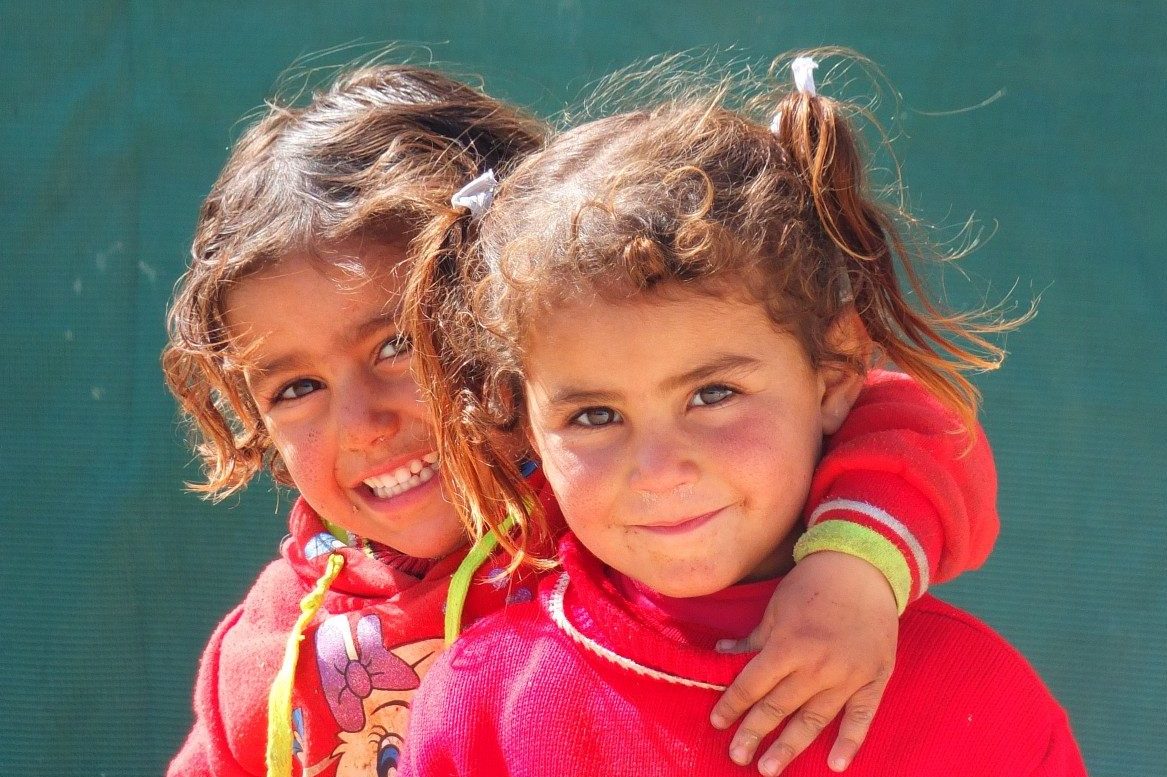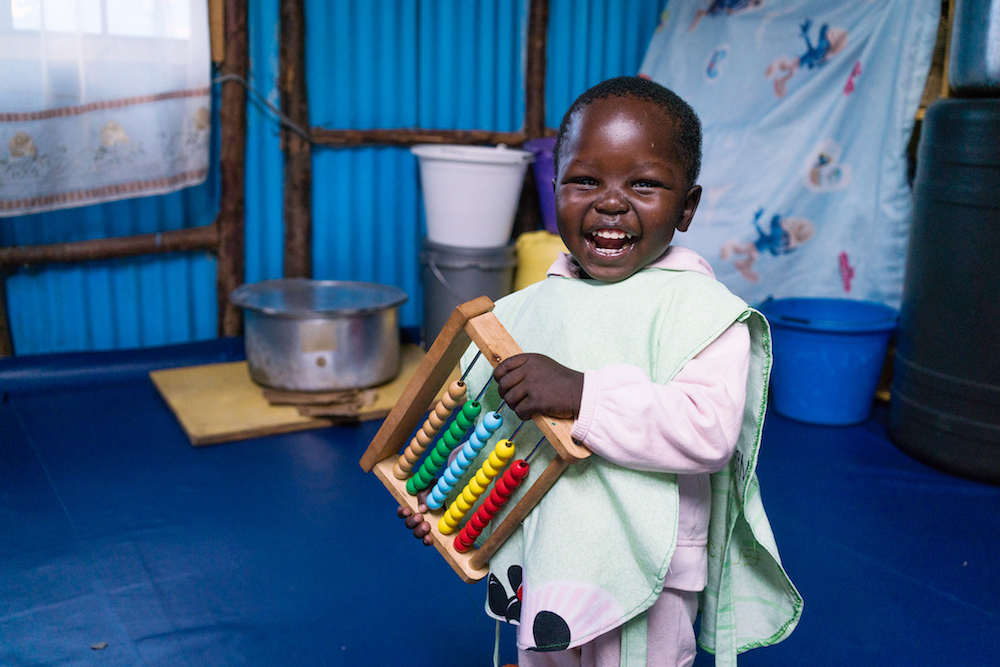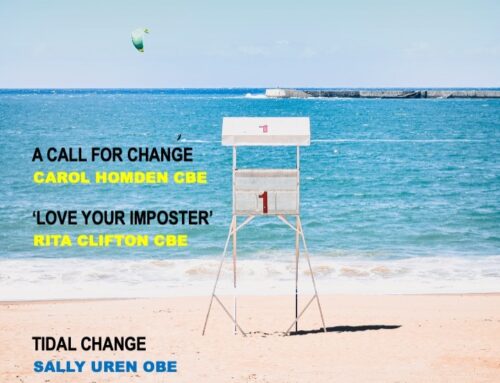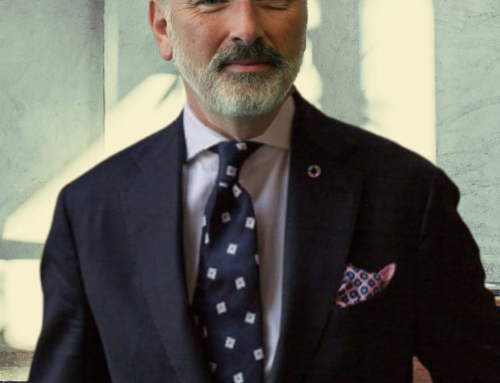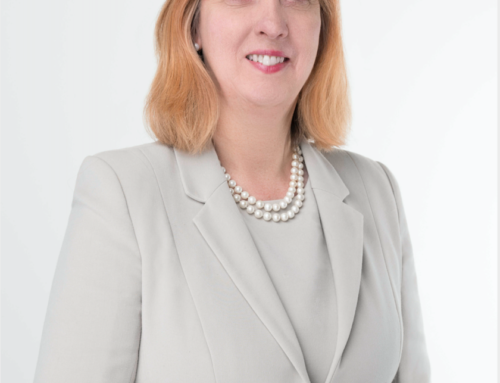Sarah Brown My World / Theirworld

Right here, right now everyone in my household is fine. None of us take that for granted anymore but we have been able to isolate ourselves, have enough food, work, entertainment and the chance of daily stroll around the village we live in. No one will find this Pandemic lockdown easy, but our village is well networked to look after each other. More than that, people here will reach out more widely to support our nearby foodbanks and engage with others in thinking of ways to connect and protect people we know and those we will never meet. That sense of powerful connection is happening in so many communities around the world, yet the bigger picture is so frightening and we need to do more to build a safer future for those more vulnerable than ourselves.
The reality hits home when news comes that a friend’s father has died of Covid-19, that others we know are suffering, that medical friends are working tirelessly to put their own lives on the line to save others. My husband, as a former politician who played a leading role in the 2009 financial crisis is never off the phone as calls come from around the globe and as plans form for the global aftermath. Nothing gets better until our global community comes together and that starts with the economic response.
We must – and in many places do – recognise that so many of our systems don’t work well enough for the complex world we have built. They need to be refocused fast to meet the challenges. Our inter-connectedness is very profound and goes to the heart of how we can overcome not just this pandemic, but the array of global problems we face. We already knew pre-pandemic, that we are off track on the promises we made as a world to deliver the United Nations’ Sustainable Development Goals – our basic template for basic decency for the next generation.
A hard fact – by 2030 half of the world’s young people will not have the skills they need to sustain their own living or contribute to their local economy. Take that in for a moment. That adds up to 1.5 Billion young people with no employable or useful workplace or entrepreneurial skills – in a fast changing world, where we know with absolutely certainty that we need trained health workers at many levels, efficient food producers, teachers, engineers, technologists and creative professionals. We can’t afford to lose all those young people making their contribution to rebuilding a shattered global economy. Education gets pushed back in emergency times as nutrition, safety and health care take priority. That does not work in the long run. We need young people to learn, to acquire skills and to be able to build their world.
That is why we named Theirworld as we did. We are a global children’s charity committed to ending the global education crisis and unleashing the potential of the next generation.
The pandemic has impacted 90% of the world’s students through school shutdowns – children are also missing out on meals and at risk of violence and exploitation. Almost 90% of the world’s student population – that’s 1.52 billion young people – have now had their education impacted by the coronavirus pandemic.
A total of 165 countries have implemented nationwide school closures, according to the latest United Nations update. Several others, including the United States and Russia, have localised school closures.
UNESCO has convened the Global Education Coalition – a broad group of international organisations, civil society and private sector partners. The agency hosted an online meeting of education ministers to review how countries are supporting students, teachers and parents to provide learning at home. As well as virtual platforms, nations are using public television to provide courses for students of all ages as well as training to teachers.
Lucia Azzolina – education minister in Italy, one of the countries worst affected by Covid-19 – said: “We are using social media tools to keep alive the relationship between teachers and students, and keep up their motivation.”
“Only 60% of students have internet so we had to provide a mix of distance education with open TV to reach everyone,” said Mexico’s education minister Esteban Moctezuma Barragán, who stressed that his country is exploring strategies to reach children with special needs.
Several ministers highlighted that the current crisis is ushering in new thinking around the practice of education. Egypt’s Tarek Shawki said: “We have made more progress with digital and distance learning in the past 10 days than in the past 10 years. Without a doubt this crisis will change the way we think about the provision of education in the future.”
The schools shutdowns mean hundreds of millions of children are missing out on their only nutritious daily meal and girls are at increased risk of sexual violence and unwanted pregnancy. We look at these issues in the five things you need to know this week about global education and coronavirus and we update this each week (you have sign up for our free newsletter to stay up to date).
With young people affected around the world, we asked Theirworld’s Global Youth Ambassadors to tell us about the effect that coronavirus is having in their communities. Find out what young activists from Cameroon, Gaza and the United States said about their hopes and fears.
And let’s not forget the vital role that the private sector can play in contributing to how we get through this crisis together. The Global Business Coalition for Education is engaging businesses in COVID-19 response. It is leveraging our REACT (Rapid Education Action) platform to mobilise corporate resources and expertise to minimise the long-term impacts on the next generation.
Theirworld will continue to generate new ideas and actions to take on the challenge of education in emergencies as the impact of the pandemic is realised. It has been our mission and that does not change.
Sarah Brown
Chair, Theirworld
Chair, Global Business Coalition for Education
@SarahBrownUK
https://theirworld.org/
https://gbc-education.org/

Sarah Brown
My World / Theirworld

Right here, right now everyone in my household is fine. None of us take that for granted anymore but we have been able to isolate ourselves, have enough food, work, entertainment and the chance of daily stroll around the village we live in. No one will find this Pandemic lockdown easy, but our village is well networked to look after each other. More than that, people here will reach out more widely to support our nearby foodbanks and engage with others in thinking of ways to connect and protect people we know and those we will never meet. That sense of powerful connection is happening in so many communities around the world, yet the bigger picture is so frightening and we need to do more to build a safer future for those more vulnerable than ourselves.
The reality hits home when news comes that a friend’s father has died of Covid-19, that others we know are suffering, that medical friends are working tirelessly to put their own lives on the line to save others. My husband, as a former politician who played a leading role in the 2009 financial crisis is never off the phone as calls come from around the globe and as plans form for the global aftermath. Nothing gets better until our global community comes together and that starts with the economic response.
We must – and in many places do – recognise that so many of our systems don’t work well enough for the complex world we have built. They need to be refocused fast to meet the challenges. Our inter-connectedness is very profound and goes to the heart of how we can overcome not just this pandemic, but the array of global problems we face. We already knew pre-pandemic, that we are off track on the promises we made as a world to deliver the United Nations’ Sustainable Development Goals – our basic template for basic decency for the next generation.
A hard fact – by 2030 half of the world’s young people will not have the skills they need to sustain their own living or contribute to their local economy. Take that in for a moment. That adds up to 1.5 Billion young people with no employable or useful workplace or entrepreneurial skills – in a fast changing world, where we know with absolutely certainty that we need trained health workers at many levels, efficient food producers, teachers, engineers, technologists and creative professionals. We can’t afford to lose all those young people making their contribution to rebuilding a shattered global economy. Education gets pushed back in emergency times as nutrition, safety and health care take priority. That does not work in the long run. We need young people to learn, to acquire skills and to be able to build their world.
That is why we named Theirworld as we did. We are a global children’s charity committed to ending the global education crisis and unleashing the potential of the next generation.
The pandemic has impacted 90% of the world’s students through school shutdowns – children are also missing out on meals and at risk of violence and exploitation. Almost 90% of the world’s student population – that’s 1.52 billion young people – have now had their education impacted by the coronavirus pandemic.
A total of 165 countries have implemented nationwide school closures, according to the latest United Nations update. Several others, including the United States and Russia, have localised school closures.
UNESCO has convened the Global Education Coalition – a broad group of international organisations, civil society and private sector partners. The agency hosted an online meeting of education ministers to review how countries are supporting students, teachers and parents to provide learning at home. As well as virtual platforms, nations are using public television to provide courses for students of all ages as well as training to teachers.
Lucia Azzolina – education minister in Italy, one of the countries worst affected by Covid-19 – said: “We are using social media tools to keep alive the relationship between teachers and students, and keep up their motivation.”
“Only 60% of students have internet so we had to provide a mix of distance education with open TV to reach everyone,” said Mexico’s education minister Esteban Moctezuma Barragán, who stressed that his country is exploring strategies to reach children with special needs.
Several ministers highlighted that the current crisis is ushering in new thinking around the practice of education. Egypt’s Tarek Shawki said: “We have made more progress with digital and distance learning in the past 10 days than in the past 10 years. Without a doubt this crisis will change the way we think about the provision of education in the future.”
The schools shutdowns mean hundreds of millions of children are missing out on their only nutritious daily meal and girls are at increased risk of sexual violence and unwanted pregnancy. We look at these issues in the five things you need to know this week about global education and coronavirus and we update this each week (you have sign up for our free newsletter to stay up to date).
With young people affected around the world, we asked Theirworld’s Global Youth Ambassadors to tell us about the effect that coronavirus is having in their communities. Find out what young activists from Cameroon, Gaza and the United States said about their hopes and fears.
And let’s not forget the vital role that the private sector can play in contributing to how we get through this crisis together. The Global Business Coalition for Education is engaging businesses in COVID-19 response. It is leveraging our REACT (Rapid Education Action) platform to mobilise corporate resources and expertise to minimise the long-term impacts on the next generation.
Theirworld will continue to generate new ideas and actions to take on the challenge of education in emergencies as the impact of the pandemic is realised. It has been our mission and that does not change.
Sarah Brown
Chair, Theirworld
Chair, Global Business Coalition for Education
@SarahBrownUK
https://theirworld.org/
https://gbc-education.org/


